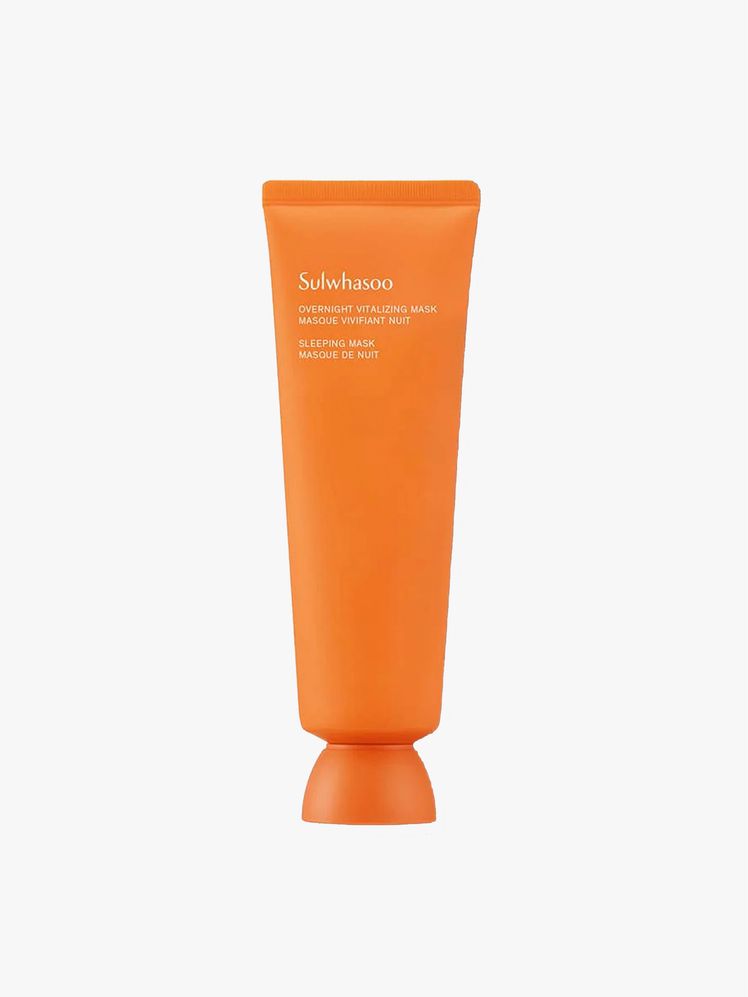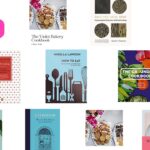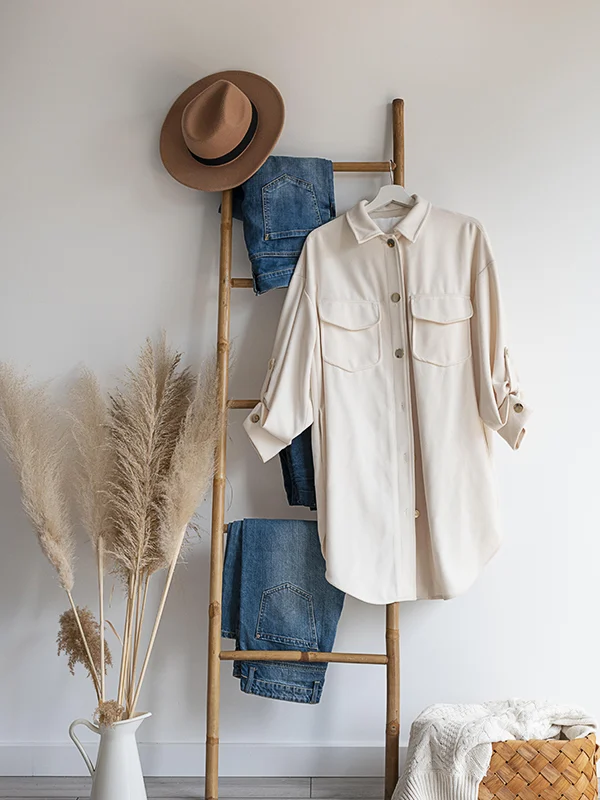Korea is a mecca for all things skin care, thanks in part to discerning, skin-savvy customers. To meet consumer expectations, the best Korean face mask offerings have to check plenty of boxes—which is why they “include the use of unique and innovative ingredients, focus on hydration and repair, and use advanced sheet mask technology,” says Y. Claire Chang, MD, a board-certified dermatologist at UnionDerm in Manhattan.
Vogue’s Guide to the Best Korean Face Masks
Korean face masks, often featuring ingredients novel to American customers such as snail mucin and egg whites, have been in high demand, which has led to entirely new varieties. Sleep masks, meant for overnight wear, offer efficiency, whereas sheet masks deliver immediate results. In recent years, these options have put Korean masks ahead of their stateside counterparts.
With that in mind, scroll ahead for the best Korean face mask options for every skin type and concern.
In This Story:
Best Sheet Mask: Peach & Lily Original Glow Sheet Mask
- Why We Love It: Earning its title of best overall, this mask assembles an impressive lineup of ingredients, including hyaluronic acid, peptides, and glycolic acid. “This mask is a one-stop-shop product for glowing skin,” says Dr. Margarita Lolis, MD, a board-certified dermatologist at Schweiger Dermatology Group in New York City. “It provides potent ingredients that are anti-aging, deeply hydrating, brightening, firming, soothing, and clearing.” And while that may sound intense, the mask is gentle enough for all skin types, she says.
- Key Ingredients: Peptides, camellia extract, Centella asiatica
- Type: Sheet mask
- Size: 20 masks
Best Overnight Mask: Biodance Bio-Collagen Real Deep Mask
- Why We Love It: There’s a chance you may have already heard of this TikTok-viral sheet mask, which turns transparent as it dries and can then be peeled off skin. Despite its eponymous ingredient (collagen) having questionable benefits, the inclusion of hyaluronic acid and niacinamide give the Biodance Bio-Collagen Real Deep Mask notable hydrating and plumping abilities. Senior beauty shopping writer Kiana Murden witnessed its powers firsthand, saying, “My jaw dropped when I saw my complexion. The congestion and enlarged pores I had on my forehead the night before had vanished. My skin felt baby soft to touch and incredibly bouncy, like I just emerged from my esthetician’s chair.”
- Key Ingredients: Collagen, galactomyces ferment filtrate, niacinamide, oligo hyaluronic acid
- Type: Sheet mask
- Size: 4 masks
Best for Acne: I’m From Mugwort Mask
- Why We Love It: “Mugwort is a Korean super-ingredient,” Lee explains, citing the wee’ds soothing and anti-inflammatory properties. That said, the featured mugwort extract is paired with a host of botanical extracts (think: camellia sinensis leaf, licorice, and rosemary) to stave off bacteria—particularly those that cause acne and eczema, reduce inflammation, and keep skin calm. It delivers additional balancing properties via its gel formula that Lee says “feels cooling and is great for soothing breakouts or sensitive skin.”
- Key Ingredients: Mugwort extract, centella asiatica extract, panthenol
- Type: Gel
- Size: 3.88 oz
Best for Compromised Skin: Dr. Jart+ Vital Hydra Solution Glow Face Mask With Hyaluronic Acid
- Why We Love It: Ideal for usage after an in-office procedure such as laser resurfacing or microneedling, this sheet mask uses an encapsulated form of hyaluronic acid, alongside a proprietary ingredient called Pentavitin. This blend “helps open hydration pathways in the skin to ensure that deep hydration is getting where it needs to so your skin can experience a big dose of hydration,” says Dr. Lolis.
- Key Ingredients: Hyaluronic acid, allantoin, glycerin
- Type: Sheet mask
- Size: 1 mask
Best for Sensitive Skin: CosRx Advanced Snail Mucin Power Sheet Mask
- Why We Love It: Dr. Chang points to this option if you’re hoping to take advantage of snail mucin’s soothing properties. The mask is “concentrated with 35,000 parts per million snail secretion filtrate to hydrate, repair, and heal the skin,” she says, adding that the naturally derived cellulose sheet fits well on the face. Note that while the mask isn’t vegan, the snail mucin within is obtained by harvesting the snails’ natural excretions. (CosRx’s essence is a favorite of Nessa Barrett, which she revealed in an episode of Vogue Beauty Secrets.)
- Key Ingredients: Snail mucin, allantoin, hyaluronic acid
- Type: Sheet mask
- Size: 10 masks
Best for Dry Skin: Sulwhasoo Overnight Vitalizing Mask
- Why We Love It: Few masks are more comforting for dry skin than this sleep mask, which counts Dr. Chang among its many fans. “It contains moisturizing ingredients like glycerin, squalane, and shea butter as well as a mix of powerful antioxidants to revitalize the skin,” she says. It also features the brand’s signature blend of pomegranate and jujube extracts, an antioxidant-rich combination that helps support the skin barrier.
- Key Ingredients: Pomegranate extract, jujube extract, squalane
- Type: Sleep mask
- Size: 4.05 fl oz.
Best Daily Pads: Neogen Real Niacinamide Glow Up Daily Mask
- Why We Love It: “It’s easy to look at these as toner pads soaked with soothing centella and brightening niacinamide, but these are actually daily masks,” Lee says, citing her penchant for these super wet, large round pads. “I actually prefer this shape sometimes. I’ll slap one on each cheek and either fold or cut one for my forehead; it’s easier than fitting a sheet mask sometimes and they don’t really slide around. They feel instantly cooling and soothing going on.” All you need to do is apply the mask to the cheeks and forehead for 10-15 minutes—just the right time to allow the niacinamide, centella asiatica, and hydration complex to transform skin.
- Key Ingredients: Centella asiatica, niacinamide, Herb Water-5 Complex
- Type: Facial Pads
- Size: 40 pads
Best for Mature Skin: Sungboon Editor Deep Collagen Overnight Mask
- Why We Love It: The rare sheet mask intended for overnight use, Dr. Chang describes Sungboon Editor’s formula as “a deeply hydrating hydrogel mask that contains collagen and peptides” that “will leave you feeling smoother and more hydrated for days.” Beauty industry advisor and former editor in chief of Allure Michelle Lee says it deserves all the hype–and far from your average sheet mask. “Rather than being soaked in an essence, the essence has actually been solidified into a gel,” she explains. “Unlike regular sheet masks which stay on for 15-20 minutes, you can keep this one on for three to eight hours and it melts into your skin. If you wear it overnight, what remains of the mask is now dry and clear since all of the essence has absorbed into your skin.” The result? A soft, glowy, and hydrated complexion. To do so, the mask draws upon the radiance-boosting benefits of tea tree extract, centella asiatica essence, and collagen. While collagen is typically too large to sink into the skin, this mask uses a low-molecular version that’s able to penetrate into deeper layers, where it helps smooth and fortify skin.
- Key Ingredients: Collagen, glyceryl glucoside, peptides
- Type: Sheet mask
- Size: 4 masks
Best for Redness: Laneige Cica Sleeping Mask
- Why We Love It: Cica has long been used in Asia to soothe inflammation—and that’s exactly what it does in this velvety overnight mask. “Sleep masks work by taking advantage of the skin’s deep reparative functioning while you sleep,” Dr. Lolis says, adding that this particular formula is ideal for those who have sensitive or acne-prone skin, as it helps skin repair its moisture barrier. Unlike cica derived from Centella asiatica (which is commonly found in skin care products), the mask’s active ingredient, madecassoside, comes from a fermented yeast that’s purportedly more potent.
- Key Ingredients: Shea butter, squalane, madecassic acid
- Type: Sleep mask
- Size: 2 fl oz.
Best for Oily Skin: Nature Republic Real Nature Tea Tree Mask Sheet
- Why We Love It: This brand is a go-to for Dr. Chang, who likes the wide variety of masks available. “I particularly like their Tea Tree Mask Sheet to help with acne-prone and inflamed skin,” she says. As the name suggests, the mask goes all in on tea tree, using both the extract and oil from the plant to refine pores and decongest skin.
- Key Ingredients: Tea tree extract, tea tree oil, Centella asiatica
- Type: Sheet mask
- Size: 1 mask
Best for Eczema-Prone Skin: Torriden Dive In Mask
- Why We Love It: Torriden’s Dive In Serum is a beloved hyaluronic acid serum in Korea, so it’s little surprise that the supplemental sheet mask is similarly popular. As is the case with the serum, the mask contains five molecular sizes of hyaluronic acid, which can, in turn, reach different layers of the skin. The mask also cools skin on the spot, making it an option to quickly quell irritation, redness, or even sunburned skin.
- Key Ingredients: Hyaluronic acid, allantoin, panthenol
- Type: Sheet mask
- Size: 10 masks
Best for Dehydrated Skin: Benton Fermentation Mask Pack
- Why We Love It: Fermented ingredients are thought to be more concentrated and better able to penetrate skin than their fresh counterparts. And those benefits come to fruition in the Benton Fermentation Sheet Mask, which contains three fermented powerhouses: galactomyces ferment filtrate, bifida ferment lysate, and lactobacillus/collagen ferment filtrate. Soko Glam founder and esthetician Charlotte Cho credits it for instantly plumping and hydrating her skin. “It’s my go-to when my dehydrated skin needs a quick reset,” she says.
- Key Ingredients: Bifida ferment lysate, lactobacillus ferment filtrate, ceramides, peptides
- Type: Sheet mask
- Size: 1 mask
Best for Dull Skin: Mediheal Vita Essential Mask
- Why We Love It: While Dr. Chang likes many of Mediheal’s sheet masks—with options available to address every skin concern—this is one of her favorites. For one, it’s infused with three types of vitamins to help brighten and repair skin. Plus, “it is made out of a bamboo-derived hypoallergenic vegan sheet that is hydrating and soothing on the skin,” she says.
- Key Ingredients: Vitamin C, vitamin E, niacinamide
- Type: Sheet mask
- Size: 10 masks
What makes Korean face masks so special?
“Korean masks tend to prioritize a couple of the core tenets of Korean skincare: namely hydration, soothing, and brightening—some can be detoxifying or exfoliating,” Lee explains. “Many people think of sheet masks when they think of Korean masks but they come in lots of formats. I use a lot of Korean skincare for my daily routine and masks are a great way to supercharge the benefits.”
What ingredients are typical in Korean face masks?
“No surprise, Korean masks typically utilize the same ingredients you’ll find in Korean skincare, like centella (soothing), niacinamide (brightening), hyaluronic acid (hydrating), collagen (plumping),” Lee says. These, have become quite common in Western cosmetics, while others—like snail mucin, honey, rice, and green tea—are quite specific to these K-beauty formulas. In choosing your face mask, think about what concerns each ingredient addresses, and go from where. “There’s such a wide variety of masks—it’s easy to choose one that meets your particular needs at that moment.”
What is the most popular Korean face mask?
It’s hard to say what exactly is the most popular Korean face mask, in part because the offerings are both vast and constantly changing. But sheet masks and sleep masks have been gaining increased popularity worldwide, according to Dr. Chang. “Korean beauty places a strong emphasis on maintaining well-hydrated skin,” she says. And both these formulations lend themselves to ample hydration; sheet masks create a seal of sorts over skin, theoretically helping ingredients penetrate better, whereas “in Korea, sleep masks are loved because they provide deep hydration overnight without feeling greasy or heavy,” says Cho.
Generally speaking, masks that contain natural extracts such as ginseng to support the skin barrier and fermented yeast to strengthen skin are also popular, according to Dr. Lolis. She also points to soothing, anti-inflammatory ingredients like allantoin and cica as beloved options that benefit most people.
How do Korean face masks work?
While it varies based on the type of mask, “Korean face masks, whether sheet masks or sleeping packs, work by creating a barrier that helps ingredients absorb deeply into the skin,” says Cho. Sheet masks are soaked in concentrated serums, allowing them to provide intense hydration in a short amount of time, whereas sleep masks work to lock in moisture overnight, thus strengthening the skin barrier.
This is by design, according to Cho. “Korean skin care rituals often feature masks because they provide an instant glow after use,” she says.
Should I use a sheet mask or a face mask?
It depends on your personal preference. Sheet masks are especially good for hydration. “Sheet masks are soaked in serums that provide intense hydration,” says Dr. Chang. They’re individually packaged, precut sheets infused with a high concentration of active ingredients, meaning they can offer immediate, if temporary, results.
However, some ingredients, such as clay and albumin, don’t lend themselves to sheet masks, since their intention is to clarify rather than hydrate. In that case, a traditional rinse-off face mask might be preferable.
What to Look For in a Korean Face Mask
First, there’s the format of the mask: It may be a sheet mask, sleep mask, or one that you rinse off after 10 or 15 minutes, depending on the formula. The choice is partly a matter of personal preference, as well as your goal, since some types of masks are better at addressing certain concerns. “Given the widespread use of face masks in Korea, there is an extensive selection of masks to choose from, with masks targeting a wide range of skin concerns and containing a variety of ingredients,” says Dr. Chang. “This allows for customizability and personalization.”
Then, consider the ingredients. “Korean skin care companies are constantly researching ingredients and formulas so there can be something for everyone—literally,” says Dr. Lolis. That means there are an array of ingredients to address concerns like large pores, dark spots, sensitive or inflamed skin, fine lines, wrinkles, and overall skin health, she says.
To that end, the right ingredients can (and should) be tailored to your individual concern. “For those with dry skin, I recommend hydrating and skin-repairing ingredients like hyaluronic acid, snail mucin, beta-glucan, ceramides, and rice extract,” says Dr. Chang. Meanwhile, those with acne-prone skin should consider ingredients like honey, tea tree oil, and green tea. Niacinamide, vitamin C, peptides, and ginseng are ideal for those concerned about signs of aging. And finally, “for those with sensitive or inflamed skin, I recommend Centella asiatica, green tea, and niacinamide,” she says.
How often should you use a face mask?
Frequency depends on your lifestyle, budget, skin concerns, and goals. Ultimately, “the key is to listen to your skin and choose masks based on what it needs: hydration, soothing, or brightening,” says Cho.
Sheet masks can be used daily (although that may depend on the ingredients), whereas sleep masks “can be used as often as a night cream: two to three times a week or nightly if it’s a gentle, barrier-focused formula,” she says.















